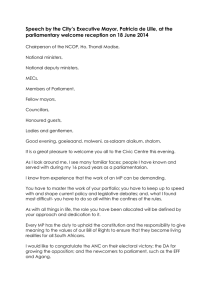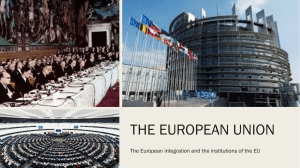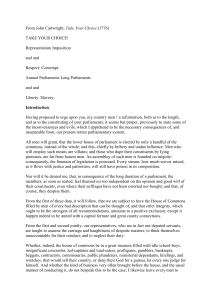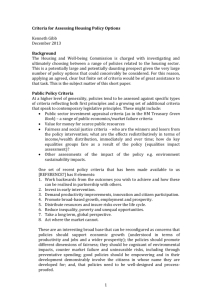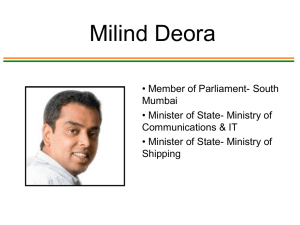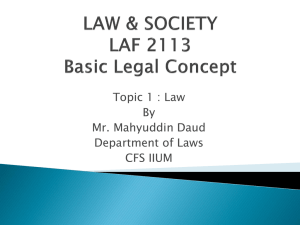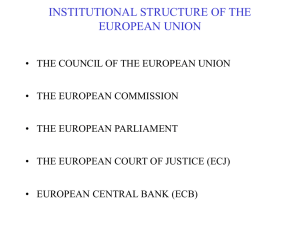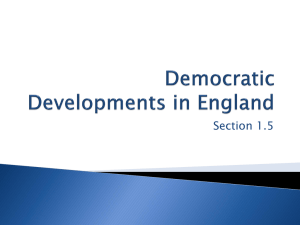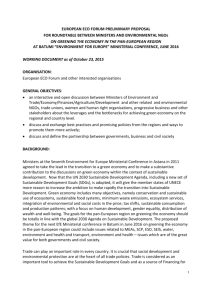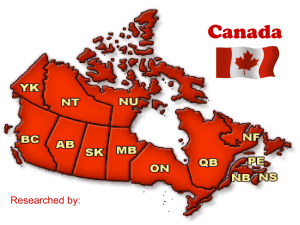L19_Mock exam paper
advertisement
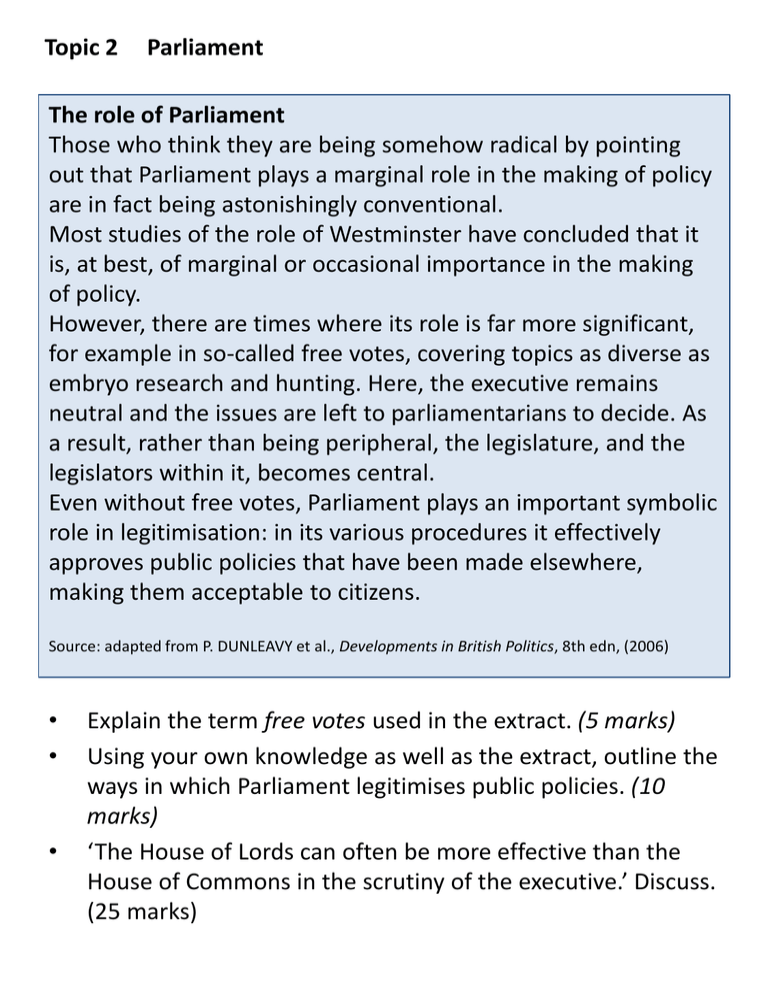
Topic 2 Parliament The role of Parliament Those who think they are being somehow radical by pointing out that Parliament plays a marginal role in the making of policy are in fact being astonishingly conventional. Most studies of the role of Westminster have concluded that it is, at best, of marginal or occasional importance in the making of policy. However, there are times where its role is far more significant, for example in so-called free votes, covering topics as diverse as embryo research and hunting. Here, the executive remains neutral and the issues are left to parliamentarians to decide. As a result, rather than being peripheral, the legislature, and the legislators within it, becomes central. Even without free votes, Parliament plays an important symbolic role in legitimisation: in its various procedures it effectively approves public policies that have been made elsewhere, making them acceptable to citizens. Source: adapted from P. DUNLEAVY et al., Developments in British Politics, 8th edn, (2006) • • • Explain the term free votes used in the extract. (5 marks) Using your own knowledge as well as the extract, outline the ways in which Parliament legitimises public policies. (10 marks) ‘The House of Lords can often be more effective than the House of Commons in the scrutiny of the executive.’ Discuss. (25 marks) Topic 3 The core executive Individual ministerial responsibility The Government has come under pressure to cut the number of ministers. Although the number has remained steady at just over 100 in recent years, the Prime Minister, David Cameron, is facing questions in Parliament about why so many ministers are needed. A House of Commons select committee chaired by Tory MP Bernard Jenkin has launched an inquiry. This committee is investigating whether there are too many ministers, what they actually do and whether they should continue to be appointed from within Parliament, or from outside. While having ministers who are not members of either House of Parliament would massively increase the pool from which ministers are drawn, it would seriously undermine the accountability of ministers to Parliament under the convention of individual ministerial responsibility (IMR). Part of the investigation will be concerned with the impact that any reduction in the number of ministers will have on the effectiveness of government, particularly if the number of civil servants is also cut. Source: adapted from ‘Top Tory asks: what do Ministers actually do?’ London Evening Standard, p4, 14 September, 2010 • • • Explain the term civil servants as used in the extract. (5 marks) Using your own knowledge as well as the extract, explain why individual ministerial responsibility is central to the operation of UK government. (10 marks) Evaluate the factors that can give the prime minister power over other cabinet members. (25 marks)
